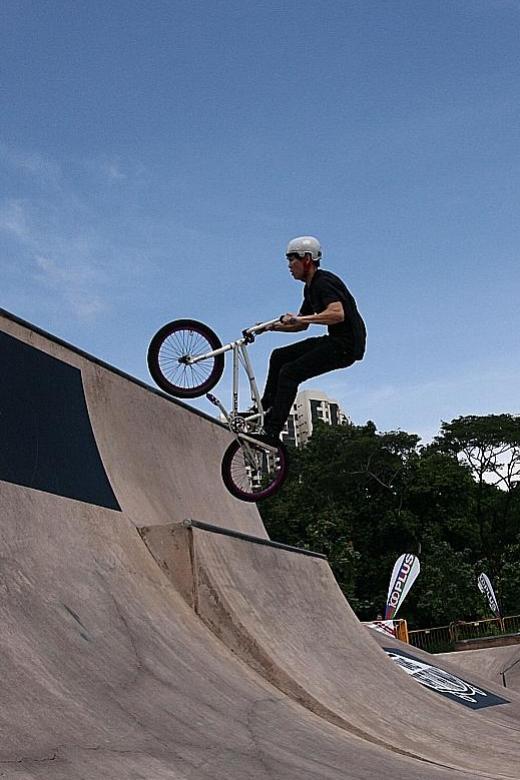Proposal to ban bikes with no handbrake from paths, roads
Active Mobility Advisory Panel's suggestion will affect fixed-gear bicycles and BMX bikes
Bicycles without a functioning handbrake should be banned from footpaths and roads, the Active Mobility Advisory Panel (AMAP) said yesterday.
If accepted, this proposed rule will affect fixed-gear bicycles, which generally do not have hand-operated brakes but instead rely on the rider's pedal resistance to stop.
It will also affect BMX bicycles, which are used for racing and stunt riding.
The panel submitted its recommendation to the Ministry of Transport yesterday.
In its report, AMAP said: "After consulting technical experts, studying other jurisdictions' experience and engaging various stakeholders, the panel recommends that there should be a minimum brake requirement for all bicycles used on public paths and roads."
It said this would improve safety for riders and path users.
The panel said fixed-gear bicycles, known as fixies, are mainly used for recreational cycling or for track cycling. It said inexperienced cyclists may find it challenging to stop the bicycles effectively.
Such bicycles came under public scrutiny in January when a 13-year-old novice cyclist fell to her death after hitting a railing while riding her friend's fixie down a ramp in a multi-storey carpark in Pasir Ris.
AMAP noted that the accident happened because the girl was unable to stop the bicycle.
It said: "Although these bicycles could have handbrakes installed, owners tended not to do so, as it would be perceived as cooler and had lower maintenance costs."
INSTALL
With the proposed new rule, all users of fixed-gear bicycles must install at least one handbrake to use them on paths and roads.
The panel said it found that BMX bikes were typically used in controlled environments such as cycling parks and generally not for commutes.
Cyclists who use them within such controlled environments can continue doing so. But they must install at least one brake if they want to use the bicycle on paths and roads.
AMAP added: "The panel will also work closely with the Government to monitor whether the current practice of conventional bicycles being equipped with two handbrakes would change with the new regulation, and take further action if needed."
Mr Steven Lim, president of the Safe Cycling Task Force and a member of AMAP, said the authorities and the panel had spoken with fixed-gear cyclists about the proposed rules earlier this year.
"Those racing using fixed-gear bicycles know that it's not the case that anyone can hop onto it and ride it like a normal bike," he said.
"It takes some skill to ride it... so they are actually supportive, especially when children as young as 11 years old are starting to ride this kind of bicycle."
The panel also recommended that regulations on third-party liability insurance (TPLI) should not be imposed on non-commercial users at this point.
"The current high cost of TPLI, especially when compared with the cost of active mobility devices, will deter many non-commercial users from taking up active mobility modes," said AMAP.
Get The New Paper on your phone with the free TNP app. Download from the Apple App Store or Google Play Store now


